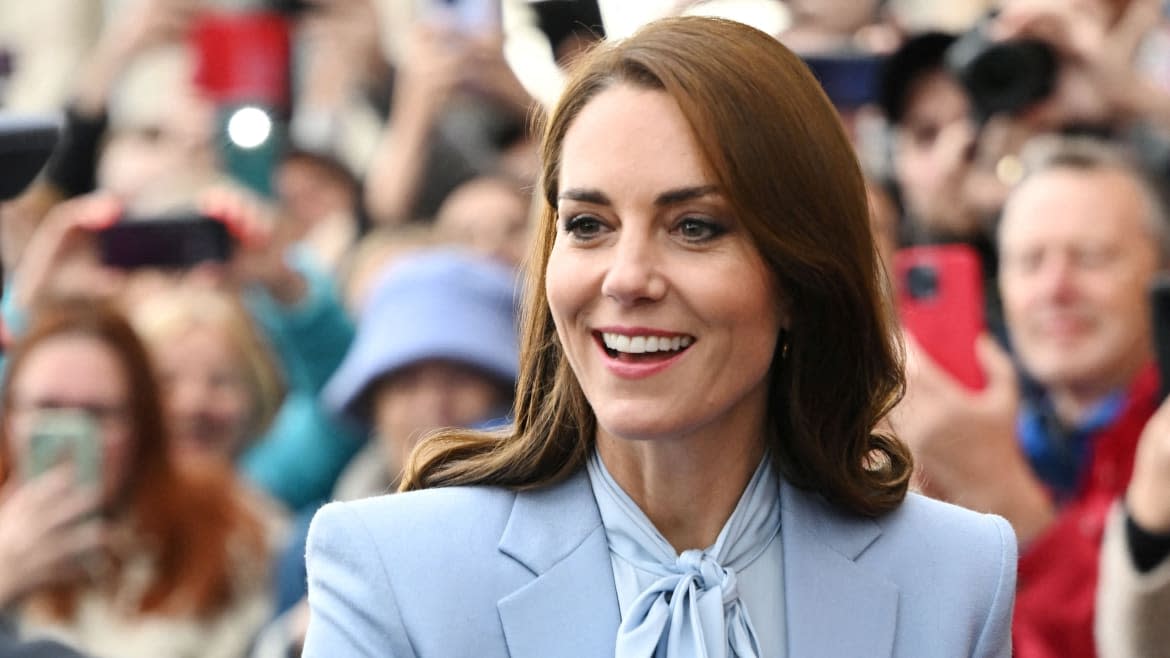News Agency: Like North Korea, Royals No Longer ‘Trusted Source’ After Kate Photo

Agence France-Presse (AFP) says it no longer considers Kensington Palace a “trusted source” after the truly bizarre case of the Mother’s Day photo which Kate Middleton apologized for editing this week.
Phil Chetwynd, AFP’s global news director, told BBC radio Wednesday about how his agency and others tried to get the palace to provide the original image to establish the extent to which the image had been edited. When they received no reply, they issued “kill” notices informing editors not to publish the doctored photo—a move which Chetwynd says has been more typically associated with images from the regimes of Iran and North Korea rather than the British Royal Family.
Where, and How, Is Kate Middleton? The Internet Knows
The image from Kensington Palace sent social media into meltdown when it was published over the weekend. It’s release was reportedly partly intended to firefight the conflagration of conspiracy theories and speculation sweeping across cyberspace about the princess’ health following her surgery in January. Instead, it poured gasoline on the flames.
“Like many amateur photographers, I do occasionally experiment with editing,” read a statement from Kate on Monday. “I wanted to express my apologies for any confusion the family photograph we shared yesterday caused. I hope everyone celebrating had a very happy Mother’s Day.”
Speaking on The Media Show, Chetwynd said AFP would previously treat Kensington Palace as a reliable source of images. He said that the offending photograph—which showed the Prince of Wales with her children, but contained several conspicuous anomalies that indicated editing—“clearly violated our rules” and it was a mistake for news agencies, including his own, to have initially cleared it for publication.
“It’s actually not even very well photoshopped,” Chetwynd said. “[There were] clearly a lot of problems with the photo, so it shouldn’t have been validated. I think as soon as it was, all the photo editors at all the major agencies immediately saw there was a problem and got together and spoke about it and [said] ‘what do we do?’”
Asked on the show if Kensington Palace is “still a trusted source” for AFP, Chetwynd answered bluntly: “No, absolutely not.” “Like with anything, when you’re let down by a source, the bar is raised,” he added.
Chetwynd did concede that the saga highlighted “major issues internally as to how we validated that photo” despite its clear violation of standards. “We have sent out notes to all our team at the moment to be absolutely super-more vigilant about the content coming across our desk, even from what we would call trusted sources,” he said.
Asked if he thought it would be helpful for Kensington Palace to release the original image so that the extent of the edits could be made clear, Chetwynd said: “That’s what we asked for.” “Before we killed the photo, we all sent a message saying: ‘Could you give us the originals? Could you, you know, have a reply?’ We didn’t get a reply, so that’s why we killed the photo.”
“It’s a big deal for an agency to issue a kill,” he went on, adding that a kill specifically “on the basis of manipulation” might only come around once a year. “Previous kills we’ve had have been from, you know, the North Korean news agency or the Iranian news agency, just to give you some background or context,” Chetwynd added.
“You cannot be distorting reality for the public,” he said, speaking generally about how much editing should be permitted for photos that are then published by the media. “There’s a question of trust. The big issue here is one of trust and the lack of trust—or the falling trust—of the general public in institutions generally and in the media. And so it’s extremely important that a photo does represent, broadly, the reality that [it was taken in], and therefore it is not, in a sense, telling some kind of lie or some kind of false truth around an event that happens.”
Get the Daily Beast's biggest scoops and scandals delivered right to your inbox. Sign up now.
Stay informed and gain unlimited access to the Daily Beast's unmatched reporting. Subscribe now.

 Yahoo News
Yahoo News 
